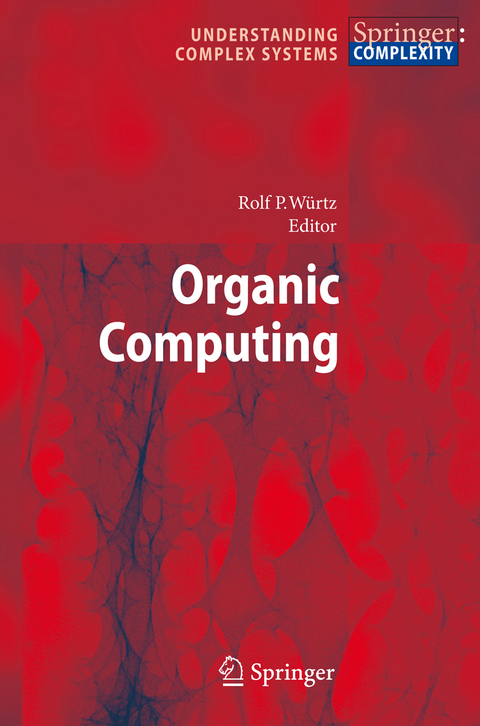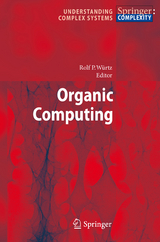Organic Computing
Springer Berlin (Verlag)
978-3-540-77656-7 (ISBN)
Organic Computing is a research field emerging around the conviction that problems of organization in complex systems in computer science, telecommunications, neurobiology, molecular biology, ethology, and possibly even sociology can be tackled scientifically in a unified way. From the computer science point of view, the apparent ease in which living systems solve computationally difficult problems makes it inevitable to adopt strategies observed in nature for creating information processing machinery. In this book, the major ideas behind Organic Computing are delineated, together with a sparse sample of computational projects undertaken in this new field. Biological metaphors include evolution, neural networks, gene-regulatory networks, networks of brain modules, hormone system, insect swarms, and ant colonies. Applications are as diverse as system design, optimization, artificial growth, task allocation, clustering, routing, face recognition, and sign language understanding.
Introduction: Organic Computing.- The Organic Future of Information Technology.- Systems Engineering for Organic Computing: The Challenge of Shared Design and Control between OC Systems and their Human Engineers.- Controlled Emergence and Self-Organization.- Organic Computing and Complex Dynamical Systems - Conceptual Foundations and Interdisciplinary Perspectives.- Evolutionary Design of Emergent Behavior.- Genesis of Organic Computing Systems: Coupling Evolution and Learning.- Organically Grown Architectures: Creating Decentralized, Autonomous Systems by Embryomorphic Engineering.- Artificial Development.- Self-adaptive Worker-Helper Systems with Self-Organized Task Allocation.- Concepts for Self-Adaptive and Self-Healing Networked Embedded Systems.- An Artificial Hormone System for Self-Organizing Real-Time Task Allocation in Organic Middleware.- Bio-Inspired Networking - Self-Organizing Networked Embedded Systems.- Self-organized Evaluation of Dynamic Hand Gestures for Sign Language Recognition.- Subspace Image Representation for Facial Expression Analysis and Face Recognition and its Relation to the Human Visual System.
| Erscheint lt. Verlag | 28.3.2008 |
|---|---|
| Reihe/Serie | Understanding Complex Systems |
| Zusatzinfo | XI, 355 p. |
| Verlagsort | Berlin |
| Sprache | englisch |
| Maße | 155 x 235 mm |
| Gewicht | 780 g |
| Themenwelt | Mathematik / Informatik ► Informatik ► Theorie / Studium |
| Naturwissenschaften ► Physik / Astronomie ► Astronomie / Astrophysik | |
| Naturwissenschaften ► Physik / Astronomie ► Theoretische Physik | |
| Naturwissenschaften ► Physik / Astronomie ► Thermodynamik | |
| Schlagworte | Architecture • bio-inspired • Bio-Inspired Networking • Calculus • Cognition • Control • Dynamical Systems • Dynamische Systeme • Evolution • Evolutionary Design • learning • Learning from Nature • linear optimization • Neural networks • Optimization • organic computing • organization • Springer Complexity • System |
| ISBN-10 | 3-540-77656-7 / 3540776567 |
| ISBN-13 | 978-3-540-77656-7 / 9783540776567 |
| Zustand | Neuware |
| Haben Sie eine Frage zum Produkt? |
aus dem Bereich




